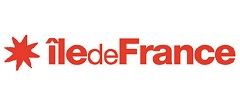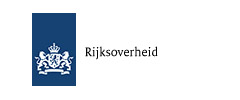Endocrine disrupters (EDCs) : 5 member states support France's request for a European-wide action
EDCs finally on the agenda of the Council of Environment Ministers of June 12th
13.06.2014 |WECF

Segolene Royal, French Minister of the Ecology and Greek Minister of the Environment Yiannis Maniatis, Environment Council, June 12th 2014 (credit: the Council of the European Union)
On June 12th, 5 EU member States, namely Denmark, Sweden, Poland, Austria and Belgium, supported the French delegation note requesting that the topic of endocrine disrupters (EDCs) be added to the agenda of the 3320th meeting of the Council of Environment Ministers, which took place in Luxembourg. As a result, the provisional press release of the Council states that "Given the now-documented effects on human health and the environment, action must be taken to prevent risks and limit exposure, in particular of vulnerable individuals such as pregnant women and young children."
France, which recently adopted a comprehensive national Strategy on EDCs is now searching to influence the European political agenda: indeed, whereas an initiative report on the protection of public health from endocrine disrupters by European Parliament ( ENVI committee, rapporteur Asa Weslund), was released in January 2013, EDCs had not yet been discussed during Environment Ministers Councils, which added to the decision taken at the European Commission level to postpone the adoption of EDCs criteria and strategy before an impact assessment study be performed.
It is very positive to see that 6 member states join forces and ask for a swift move forward of the EDCs topic:
- France, whose new comprehensive strategy covers four areas - scientific research & monitoring, substances expertise, regulation of EDCs and alternatives, and training and dissemination of information on EDCs, and includes measures on bisphenol A in cash receipts and toys;
- Denmark, which is very proactive on EDCs, and has in the past raised points such as the effects of combined exposure to several phthalates, banned 4 of them in certain consumer products, as well as two parabens in cosmetics products;
- Sweden, which supports a restriction of NPEs (nonylphenol ethoxylates) in textiles, and plans to take legal action on the delay taken at EU level to adopt EDCs criteria;
- Austria, which was one of the first EU countries to ban bisphenol A in pacifiers several years ago,
- Belgium, which took action on bisphenol A and is already quite advanced in the field of environmental and health training of professionals,
- Poland, which proposed in April 2013 to classify phthalate DPP as toxic for reproduction under REACH, resulting in a new classification.
This group of motivated member states has now to be widened to others, such as Italy, which is, after Greece, taking over the presidency of the Council for the 6 next months as from July 2014. So far, the work programme of the Italian presidency for the environment sector do not include endocrine disrupters; We do hope that the agenda of the forthcoming presidency will evolve to include this major public health and environment topic.
For more information: press release of the Council meeting of June 12th.

































